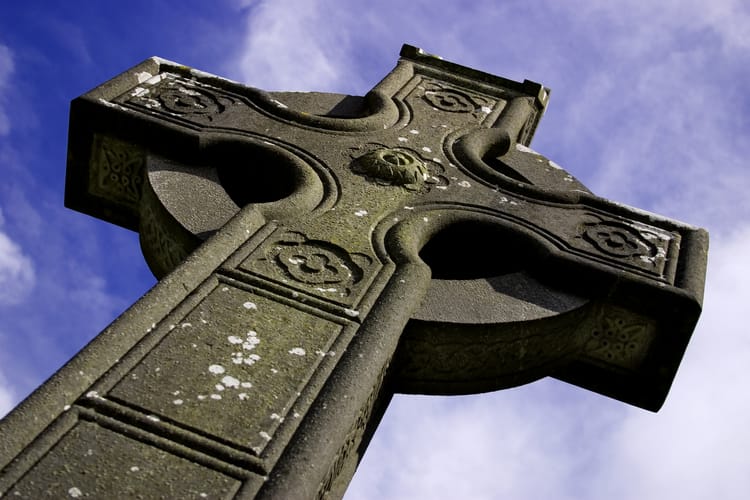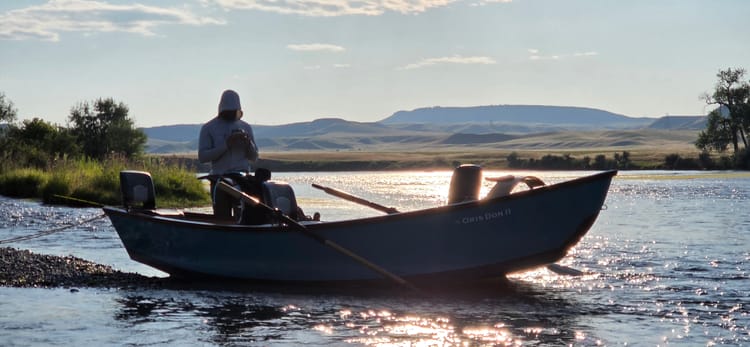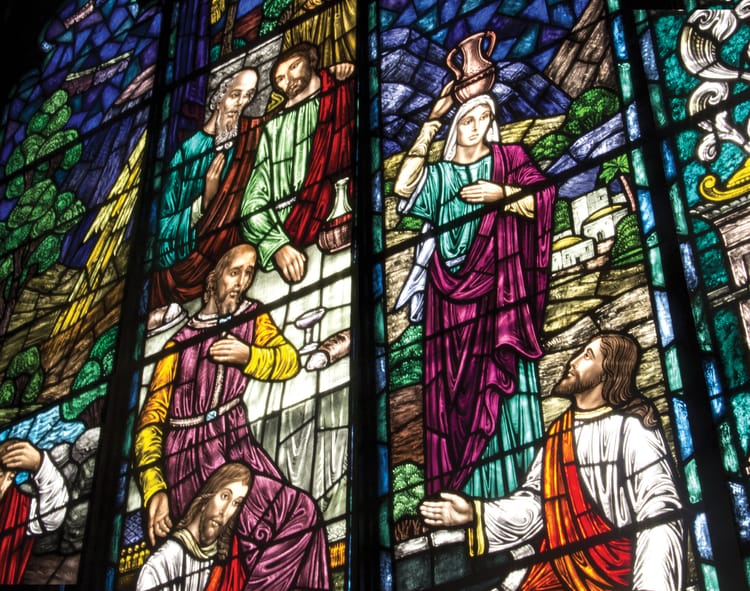Affliction as a Teacher

Here's what I am thinking about this morning: Affliction.
I find myself in Psalm 119 today, (once again) grumping that this is my least favorite chapter in the Bible, mostly because it feels so insufferably long. Yet, as I start to read and write and pray my way through it, I feel like (once again) God has something for me here – something he wants to say, something I need to hear.
I get my first glimpse down in verse sixty-seven. (Does that seem long to you? We've barely gotten started. There are one hundred and seventy-six verses in Psalm 119, all neatly divided into 22 eight-verse sections; this prayer-song is structured as an acrostic – each line in each section begins with the same letter: Aleph, Bet, Gimel, Daleth, He, Waw, Zayin... by the time you get to the end you've worked your way through the entire Hebrew alphabet. Just reading this psalm feels likes writing lines to me: affliction!)
I am in Teth when I see it:
v. 67 – Before I was afflicted I went astray, but now I keep your word.
The Psalmist seems to be saying that affliction is (or can be) a tutor, a teacher. Before affliction, I was foolish, undisciplined, I went astray... But now, (presumably) after affliction has had its way with me, I have finally started to learn to keep God's word. Affliction is a teacher.
The psalmist is even more direct a few verses later:
v. 71 – It is good for me that I was afflicted, that I might learn your statutes.
He seems to be saying that affliction is good for me. And after all these years (and all these miles) I think I am finally starting to see his point and agree with it.
Here are a few things I think (maybe) I am learning.
First, I am thinking of my former church this morning, All Souls Missoula. We had the opportunity to have dinner with old friends this past week, R & S. They were there when we planted that church, they are still there now. They tell us how it is going. Most of what they share I find disheartening. It would be very easy just to mourn what has been lost. It would be even easier to complain to God about it.
Instead, I write this:
Lord, I find myself thinking about the importance of not raising a complaint against my former church. It is so easy to be critical – at the lack of leadership, at what it has become, at the ways we feel wronged. But still, your church is still your church... Is my bitterness because it's no longer my church? Because it no longer remembers me? Listens to my counsel? Cares for my advice? How many of my critiques are really just about me – that the church we labored to birth no longer off any vindication for us? O Lord, please forgive my self focused heart!
We still feel like our former church cast us off. If you've ever had people you counted as friends forsake you, tell lies about you... that experience (still) feels like nothing less than affliction. Nevertheless, God taught us much through that affliction, so that (now) I wouldn't trade it for anything.
So... what if I could learn to drop my complaints against Christ's bride, even when we feel that she has genuinely wronged us? What if I could do that with everyone I feel critical of? To pray, to thank, to rejoice... but not to criticize or critique, not even to God?
(To be clear, I do think we have the right to take our complaints about others to God; if we must complain, complain to him. I believe we find support in the Scriptures, especially in the Psalms. However, I also wonder if the New Testament bears witness to an even deeper path of faithfulness: loving our enemies, praying for those who persecute us, laying aside our complaints in favor of intercession. The Way of Jesus takes us further, deeper into the love of God.)
This deeper way is very hard. I am only recently starting to become acquainted with it. I think I need to learn more in this regard.
Secondly, I am also thinking of Thomas & Amy this morning, as the pre-dawn dark turns slowly into twilight. We me them shortly before we left Missoula to move to Austin. They are currently living and serving in Salt Lake City.
Like us, Thomas & Amy are bivocational: Thomas runs an excellent little coffee roastery with three cafes; Amy runs after their three kids. Like us, they are planting a church that meets (by design, perpetually) in their living room. Like us, their lives have proven hard.
I talked to Thomas briefly last night. He sounds exhausted. Work is particularly difficult right now. (Is running a business ever easy?) This past year has been challenging – from a bad car accident (last year), to unexpected house repairs (new sewer lines all the way to the street), to kids in the hospital (last week), to back surgery for Thomas (today). In the midst of all this, they are facing the immanent loss of two out of three core families that currently comprise their church (moving away within the next few months). Ugh! Affliction!
If All Souls in Salt Lake City is going to continue to survive, it will mean re-planting the church. Thomas is not sure if they're up to it. But they're not sure what else they could do, either. Surely this feels like affliction, too?
I find myself writing in my journal:
Lord, Thomas & Amy really need to hear from you. What are you trying to say to them? What would you have them do? Would you please put them in a place to hear your voice, before simply giving up, before throwing in the towel, or before just plodding on without really listening, seeking, hearing. And what can we do to help them in this process?
Thomas & Amy are in a hard spot. Affliction! But if this is truly the Lord's gift, his way of getting through to us, or at least one of the places where he seems to most easily get through to us, then all this affliction is an opportunity for Thomas & Amy to learn and grow. But it is also an opportunity for us to join them in their affliction, not so much to rescue them per se, but to at least sit with them in their adversity and to remind them they are not alone.
After all, Paul tells the Philippians, "It has been granted [gifted?] to you, not only to believe in Christ, but also to suffer for his sake..." (Phil 1:29).
I do not think these verses speak only of "persecution" for being a Christian. Rather, I have come to believe that perhaps this is something "gifted" to every Christian – a not-of-ourselves capacity to endure hardship, to find Christ in it, to enter into it with, for, on behalf of others, so that even if we might not eliminate others' suffering, we might at least ensure they are not alone in it.
After all, why else would Jesus make such a big deal about those who would be his "sheep" (as opposed to "goats") giving food to the hungry, drink to the thirsty, welcoming strangers and visiting those in prison? ("Truly I say to you, as you did it to the least of these my brothers and sisters, you did it to me." ~ Mt 25:40).
Why are these lessons so difficult to learn? Affliction!
Speaking of prison, I am also thinking of Emiliano & Ximena. I wrote about them in my last email. Emiliano was picked up by the county sheriff's office, flagged by immigration, transferred to ICE.
Ximena is beside herself. They came to this country seeking asylum. Emiliano has no criminal record. He is the breadwinner in the family. She has been taking care of their two young girls.
Marilyn & I were able to visit Emiliano twice over the past two weeks; I think we are the only visitors he has had since he was detained in early February.
Visiting is not an easy process. Emiliano is currently being held in a detention facility about forty minutes away – we're talking razor wire, guards, metal detectors, the works. We reviewed the website carefully before our first trip. Visiting hours are Monday through Friday, from 8 AM - 4 PM, with another window on Saturday. Clergy can visit anytime.
At least, that's what it says on the website.
On the ground it was a different story. We arrived on a Friday morning. The receptionist took our information, confirmed that Emiliano was in the facility. "Visitation is based on last name. His days are Monday, Wednesday, Friday. So you're here on the right day. But his windows are Noon - 4 PM. You're too early, so you'll have to leave and come back."
Well, that was frustrating.
"Oh, and your dress is too short," she said to Marilyn (about the skort that came down to her knees). "They won't let you in. You'll need to get pants."
So we drove forty miles back to Austin, where Marilyn changed. And then we drove forty miles back to the detention center again. You're not allowed to take anything in with you – cell phone, paper, pen, nothing. Once you're through security, you sit in a waiting area until they (eventually) buzz you through multiple gates and into a large sterile rom with a plastic chairs around a handful of tables. They allow us to hug Emiliano, but we have to sit on the opposite side of the table from him. It's a good thing Marilyn speaks Spanish, since he doesn't know English. The woman at the desk ten feet away is listening to everything we say.
Technically, Emiliano has an attorney – a public defender appointed by the state. But we have no way of knowing what advice he is giving, whether it's accurate, in Emiliano's best interest, etc. I have no way of reaching out to the attorney to ask questions on Emiliano's behalf. Over the past week I have tried contacting several immigration attorneys and everyone is so swamped that no one has returned my calls. It is very discouraging.
Emiliano shares a cell with 45 other detainees. He has been able to talk to Ximena via phone. Technically, he gets one call a week, but sometimes others will give him their slot, so they've been able to speak more frequently. Still, communication is spotty at best. Detention centers are like black holes. I wonder how many people in here are completely cut off from the outside world?
Last Friday (our second visit), Emiliano told us he has been given 3 options:
- He can pay $6000 and they will release him with an ankle bracelet. But he doesn't have that kind of money, and he will need a sponsor, and even then, he could still be deported at any time in the future. We tell him our church will help with the cost, that we would be happy to sponsor him. He smiles gratefully and says he doesn't know if he has any choice in the matter.
- He can be voluntarily deported. If he takes this route, he at least (theoretically) has the opportunity to return to visit his family at some point down the road. But he has to pay for his own plane ticket. Again, we tell him we will help with the cost of this, if he needs it.
- He can be involuntarily deported. If he takes this route, he will not be eligible to return to the US under any circumstances for at least ten years. His oldest daughter will be 19 by then.
All this will be decided at his upcoming hearing.
Based on our understanding, the hearing won't take place in an actual court room. Instead, it will happen over a video feed on a computer screen. I don't know if his court assigned attorney will be physically present with him or not. Emiliano doesn't know whether he gets to choose one of these options, or if one of these options will be chosen for him. He says he prefers the voluntary deportation, since that gives him the best option to see his family again. I don't know if this is true or not. I don't know if this is the best option or not. There is no way to ask anyone to help Emiliano get better answers, or better representation.
We feel powerless, just like Emiliano and Ximena.
Emiliano and Ximena started the asylum process when they entered the US through New York four years ago, but the immigration courts are severely overloaded. Now, his case will never be considered.
Regardless of what happens to him, Emiliano wants Ximena to find a new apartment as soon as possible – the authorities know where he lives now; he is afraid they will come after her next. Marilyn and I wonder if this will even be possible for her; how do you get into a new apartment without a deposit and job and a series of pay stubs? Right now she can't even buy groceries.
Marilyn went to see Ximena on Friday after we got back into town. She planned to drop off a gift card to our local HEB grocery store, to pass along Emiliano's greetings. Ximena was not at home, so she left the card with an aunt who was there looking after their girls. As Marilyn got back into her car to leave, the 9 year old (named Ximelia) followed her out of the house.
"Did you see my daddy today?" she asked in Spanish, when Marilyn rolled down the window.
"Yes, I did." said Marilyn. "He loves you very much and he misses you dearly."
Marilyn did not have the heart to tell her that she may not see her father again for a very long time. She will learn that firsthand, for herself, soon enough.
Emiliano had his final hearing this morning. Our little house church gathered briefly online to pray for him – for grace, for mercy, for peace, for wisdom, for rescue. Marilyn texted Ximena to let her know we were praying.
An hour ago Marilyn heard the results – Emiliano is being voluntarily deported. Ximena is working on details, to find out if she can deliver a suitcase so he can at least go back to Guatemala with some clothes. Then she must start looking for work. And we must discern how God is calling us to help.
Affliction. I still don't understand it. And I certainly don't enjoy the pain it brings. But over the years I have come to believe that God is in it, over it, and works through it – or at least this is a possibility, when we seek him in the midst of our affliction, or when we enter into it willingly for his sake, and for the sake of others.
The Apostle Paul tells us to us to "rejoice in our sufferings, knowing that suffering produces endurance, endurance produces character, character produces hope, and hope does not put us to shame because God's love has been poured out into our hearts through the Holy Spirit who has been given to us." (Romans 5:3-5)
So I am learning, I think, to see these things – these various afflictions, in our lives and in the lives of others – as opportunities to identify with Jesus, and to join fellow pilgrims in their suffering, so that at the very least they may know they are not alone in it. And I have come to believe that God allows all this only because it is the very best thing for us, to wake us from our slumber and to teach us to depend on him. That is what affliction has been teaching me.
Where do we go from here? I'm not sure. But i am confident that Jesus, who works all things for good, will show us the way and make our path straight. And so we pray – for friends and enemies alike, for people in ministry like Thomas & Amy, for folks in need, like Emiliano & Ximena. We invite you to join us in this endeavor, and to ask God to help us learn what he wishes to teach us.






Member discussion